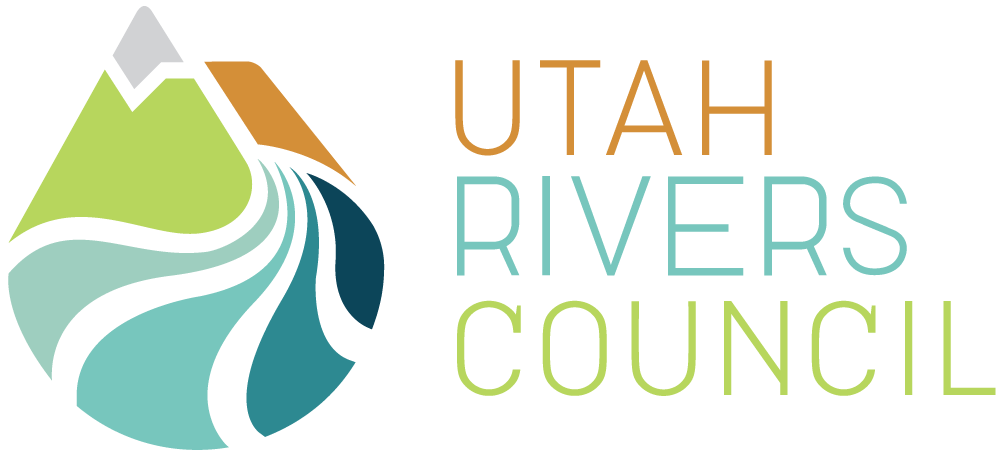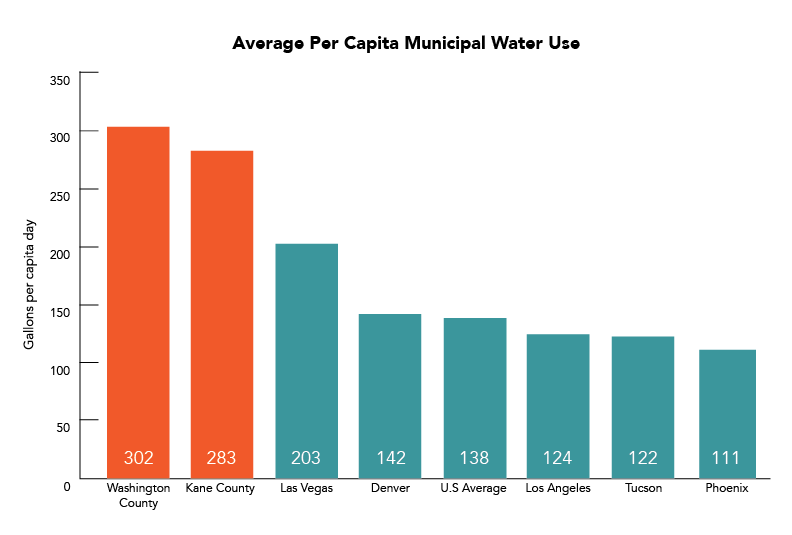Fortunately, inexpensive alternatives exist to the Lake Powell Pipeline that can provide plenty of water for Washington County’s future. A few of these solutions are:
Water Conservation. Washington County residents use twice as much water as the average American with each person using a staggering 325 gallons every day. There is a lot of room for conservation without causing any hardship. By following successful conservation models, like those that have been adopted in Albuquerque, Phoenix and Las Vegas, Washington County can dramatically cut municipal water use while still providing plenty of water for a growing population. Some of these options include:
Restructuring water rates to penalize water wasters and reward conscientious users
Imposing watering restriction enforcement
Offering rebates and incentives to conserve water outside the home
Kane County has no need whatsoever for Pipeline water, as the documents for the project submitted to the federal government clearly demonstrate. The Water Needs Assessment for Kane County clearly indicates that
Phasing Out Property Taxes for Water. The water supplier delivering water in Washington County receives more money collecting property taxes from residents and businesses than from selling water. These property taxes lower the cost of water and force conscientious water users to pay for their neighbors to waste water. Pricing water at its true cost sends a signal to consumers that water is a valuable resource—especially in a desert region like southwest Utah. Learn more about free market water here.
Convert surplus agricultural water for municipal use. Around 70% of the water consumed in Washington County is currently used by farms and ranches. As Washington County grows, urbanization will continue to convert area farms to homes and businesses. Although the loss of farmland is nothing to celebrate, paving irrigated farmland creates a surplus of water and a 2015 Audit showed there is already a large surplus of unused water in the county.
Converting this surplus water to new urban uses is a key component to ensuring an adequate water supply, but Utah’s water salesmen have been ignoring and downplaying the growing amount of agricultural water available for the future.




